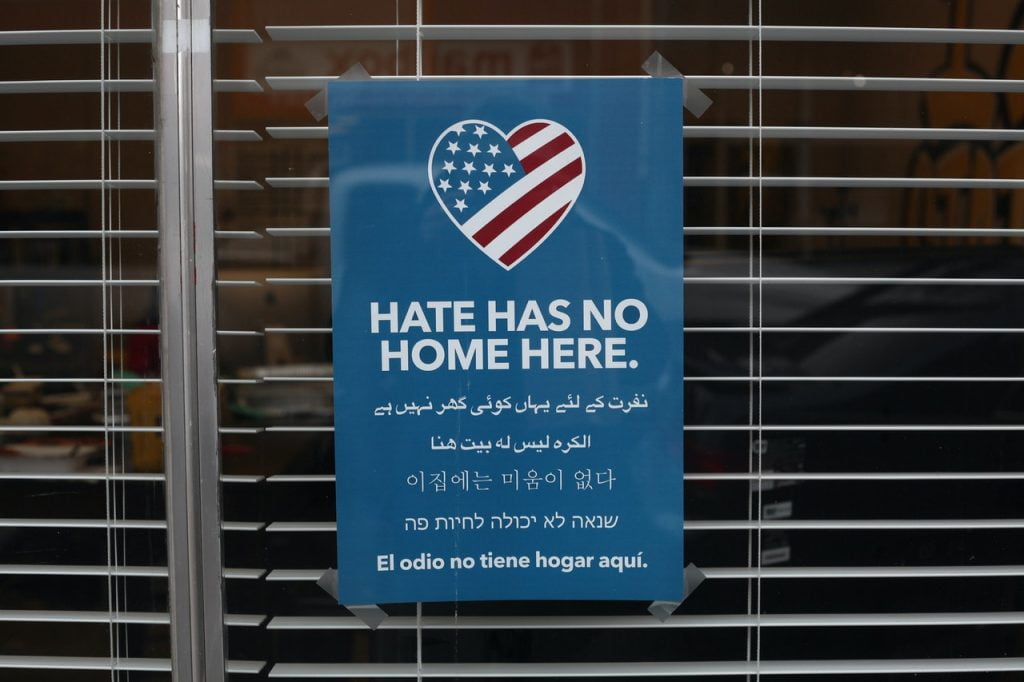
The novel SARS CoV-2, also commonly known as the Corona Virus (COVID-19), currently dominates the news in 2020. The virus has reached worrying levels as a global pandemic, threatening the stability of the health, legal, and economic systems of countries. Currently, the US alone reports more than half a million cases with over 20,000 deaths. With Americans living in fear of the unknown, it shouldn’t come as a surprise that this fear has instigated mistrust and aggression among US citizens.
With its origins allegedly from a food market in Wuhan China, there has now been an increasing mistrust of Asian communities. This has prompted a surge of xenophobic and racist incidents directed towards Asian American and Pacific Islander communities (AAPI). Such incidences have included death threats, physical assault, vandalism, and verbal harassment. American officials are working to contain an onset of hate crimes among the public brought on by mass hysteria.
What Counts as a Hate Crime?
Any crime that targets an individual because of his or her race, religion, sexual orientation, skin color, gender, disability, or national origin is termed as a hate crime. Specifically, Section 422.55 defines a hate crime as:
“…a criminal act committed, in whole or in part, because of one or more of the following actual or perceived characteristics of the victim:
(1) Disability.
(2) Gender.
(3) Nationality.
(4) Race or ethnicity.
(5) Religion.
(6) Sexual orientation.
(7) Association with a person or group with one or more of these actual or perceived characteristics…”
Hence, the two fundamental elements of a hate crime are (1) the underlying offense (the criminal act committed) and (2) the motivation bias against the victim’s membership, whether real or perceived, of a specific social group or race.
There is a difference between a hate crime and a hate incident. Hate crimes interfere with one’s civil rights. Hate incidents are behaviors or actions that are motivated by hate but are protected under the First Amendment as your freedom of speech. Examples of hate incidents include name-calling, insults, distribution of hate material in public places or on private property, or protesting.
As long as the incident does not interfere with others’ civil rights as we mentioned in our “What Happens if I’m Arrested for Protesting” article, the US Constitution allows for hate speech. However, once a criminal threat is made, or action is committed to hinder a person’s civil rights, hate crime charges can apply.
Currently, the most common hate crimes perpetrated against Asian communities as a result of the Corona Virus pandemic are phone threats, vandalizing victims’ property with derogatory racial terms, and physical assault.
Penalties
Offenders accused of a hate crime can be convicted as a felony or misdemeanor, depending on the circumstances surrounding the case. Penalties for a misdemeanor conviction include a probationary period, up to 1 year in county jail, up to $5000 in fines, or a maximum of 400 hours of community service. Felony charges usually involve the presence of aggravating factors like an assault with a deadly weapon, a death, a child was the primary victim, or firearm usage. The penalties for a felony hate crime range from life without parole, the death penalty, or enhanced sentencing (an additional term of up to 4 years in prison).
Legal defenses
Here are some of the legal defense that an attorney could use in court:
- The person was within his or her rights because the act qualifies as freedom of speech in the First Amendment.
- It is a case of false accusation or misidentification (if the prosecution can’t prove the person was the offender behind the charges).
- The person did commit the crime, but it was not motivated by any bias so it does not qualify as a hate crime.
If you or someone you know was charged with a hate crime, reach out to an experienced criminal defense lawyer. Criminal Defense Hero works tirelessly to stay up to date on all criminal laws and maintain a successful track record for our clients. If you have any criminal defense questions, please reach out to us on webchat or by phone: +1 323-529-3660.









